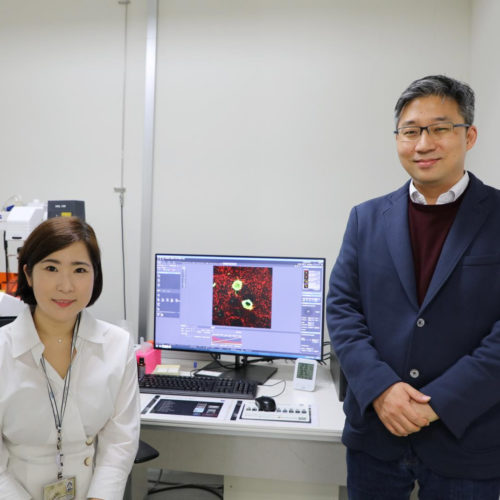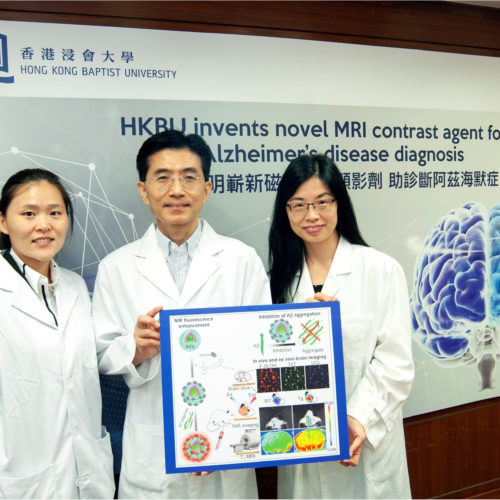by Jennifer Michalowski, Cold Spring Harbor Laboratory A highly specialized cell, the fibroblastic reticular cell, coordinates immune responses to cancer cells. In this image, a single fibroblastic reticular cell is identified, by staining it: the cell nucleus (blue), markers that identify fibroblast cells (red), and a molecule that attracts immune cells (green). Cancer immunotherapies, which empower...
Coronavirus mutation may have made it more contagious: study
by University of Texas at Austin The number of virus strains present in each zip code in Houston during the second wave of COVID-19 cases in summer 2020. Number of strains is represented by a spectrum of colors from blue (0 strains) to red (50 strains). A study involving more than 5,000 COVID-19 patients in Houston...
Trial using Regeneron’s antibody drug – which was given to Trump – to treat severely ill COVID-19 patients paused over ‘potential safety concern’
Regeneron’s highly-anticipated coronavirus antibody drug faced a setback Friday when an outside panel recommended its trial of the antibody cocktail to treat severely-ill COVID-19 patients be paused over a ‘potential safety concern.’ Trials for the antibody cocktail – the same experimental treatment given to President Trump shortly after he tested positive for COVID-19 earlier this...
Vitamin B3 protects skin cells from the effects of UV exposure, new research finds
SAY COMMUNICATIONS LUGANO, 31 October, 2020 – Research presented today at EADV’s 29th Congress, EADV Virtual, shows hope that a form of vitamin B3 could protect skin cells from the effects of ultraviolet (UV) exposure: the main risk factor for non-melanoma skin cancers (1). Researchers in Italy isolated cells (human primary keratinocytes) from the skin of patients with...
Artificial intelligence is being trained to predict whether someone is likely to develop oral cancer
The diagnosis of oral cancer could be ‘revolutionised’ by using artificial intelligence to predict whether someone is likely to develop the disease, experts have said. Experts led from the Universities of Sheffield and Warwick have teamed up to investigate how machine learning could be applied to aid doctors in early detection. Diagnoses of oral cancers...
Ultrapotent COVID-19 vaccine candidate designed via computer
UNIVERSITY OF WASHINGTON HEALTH SCIENCES/UW MEDICINE IMAGE: ARTIST’S DEPICTION OF AN ULTRAPOTENT COVID-19 VACCINE CANDIDATE IN WHICH 60 PIECES OF A CORONAVIRUS PROTEIN (RED) DECORATE NANOPARTICLES (BLUE AND WHITE). THE VACCINE CANDIDATE WAS DESIGNED USING METHODS DEVELOPED. An innovative nanoparticle vaccine candidate for the pandemic coronavirus produces virus-neutralizing antibodies in mice at levels ten-times greater...
Molecular interactions regulating trans-synaptic signalling and synapse formation
DGIST (DAEGU GYEONGBUK INSTITUTE OF SCIENCE AND TECHNOLOGY) IMAGE: PROF. JAEWON KO (RIGHT) AND THE FIRST AUTHOR DR. KYUNG AH HAN (LEFT) Scientists at Korea’s Daegu Gyeongbuk Institute of Science and Technology (DGIST) and colleagues have uncovered some of the complex molecular mechanisms involved in the formation of the brain’s neural circuits. Their findings were...
Age is a primary determinant of melanoma treatment resistance, two studies find
JOHNS HOPKINS MEDICINE IMAGE: ASHWANI WEERARATNA, PH.D. Age may cause identical cancer cells with the same mutations to behave differently. In animal and laboratory models of melanoma cells, age was a primary factor in treatment response. Cancer has long been known to be a disease of aging, with 60% of cases and 70% of deaths...
Abnormal blood pressure levels while sleeping increase risk of heart disease, stroke
AMERICAN HEART ASSOCIATION DALLAS, Nov. 2, 2020 — People who experience high blood pressure while sleeping are more likely to experience future cardiovascular disease especially heart failure, even when their daytime blood pressure is within normal ranges, according to new research published today in the American Heart Association’s flagship journal Circulation. Health care professionals typically use in-office and...
Novel MRI contrast agent offers hope for early detection of Alzheimer’s disease
Nov 2 2020 Hong Kong Baptist University (HKBU) scientists have invented a novel contrast agent for magnetic resonance imaging (MRI), which enables real-time visualization and detection of the size and number of amyloid-beta in the brain, a main hallmark of Alzheimer’s disease (AD). The invention offers hope for early detection and large-scale routine screening of...








